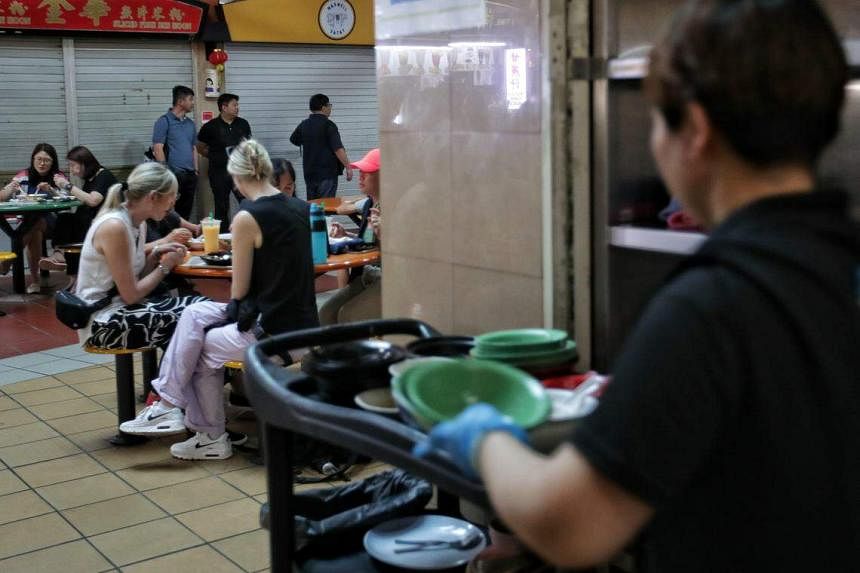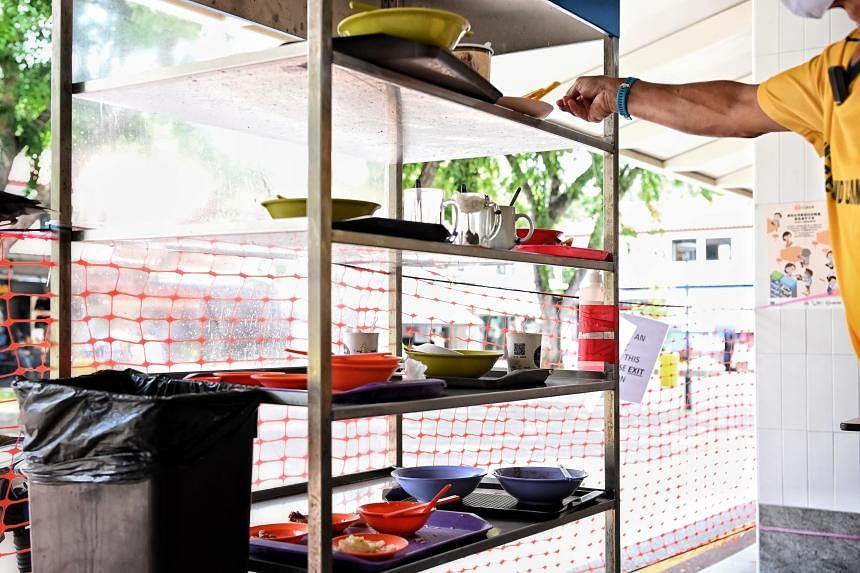- Joined
- Dec 6, 2018
- Messages
- 16,698
- Points
- 113
Poor Sia Suay Sinkies should be banned from patronising hawker centres. Ramesh and his foreign friends are not happy seeing them there.
Fine sinkies make them very afraid.Sinkies need to learn to not eat like pigs. Keep the table and tray as clean as possible, so that clean up is quick and easy.
Sinkees afraid of Tray Return Captain.Fine sinkies make them very afraid.
Sinkies must Listen to your leaders





What happens when I clear the table and return the utensils and trays?
When I eat, some food, soup or gravy may spill onto the table.
When there are bones, I put the bones on the table. Even if I put the bones back into the bowls when I clear my table, the table is already dirtied.
There is also water condensation from cold drinks that fall onto the table.
The NEA is expecting all patrons to use tissues to wipe the table but this is a naive expectation.
Not all patrons carry tissue, and not all patrons see it as their responsibility to wipe the table.
Yes, they can clear the table but will not wipe the table.
From far, the table looks clean to the cleaners, and they will not come over to wipe the table.
But the table is still dirty and the next patrons cannot occupy the table, or have to take out tissues to clean the table.
It is better to leave a clean table for the next patrons.
And the way to do it is to leave the table uncleared, have the cleaners come over and clear the table as well as wipe the table.
The patrons do not have to put up with the hassles of clearing their own tables, more cleaners are employed, and the table is cleaned for the next patrons.
Forum: Over a third refuse to return trays, clear used tissues at hawker centres
We thank Ms Susan Tan Lin Neo for her feedback (Dangers of bad habits at hawker centres not taken seriously, Aug 13).
We agree with her that patrons at hawker centres must clear their own trays and used tissues. As used tissues or wet wipes can be contaminated, they pose a risk to others who touch them directly, or the surfaces they were in contact with.
The National Environment Agency (NEA) urges the public to properly dispose of their used tissues and wet wipes to keep the dining tables clean for the next user, and minimise the risk of disease transmission to cleaners and other diners.
Ms Tan is also right in stating that leaving table-clearing to cleaners is the wrong mindset to have. We still hear the occasional comment that clearing one's litter or tray would deprive cleaners of their jobs.
This is a misconception, and an excuse that a minority of diners use for not cleaning up after themselves.
Cleaners will still have other cleaning tasks to perform at the tray return points or centralised dishwashing stations.
In fact, leaving trays and soiled tissues behind makes their cleaning jobs more difficult. Thankfully, the majority of those who frequent hawker centres understand the important roles played by cleaners as essential workers in safeguarding public health, and do their part to keep Singapore clean.
The NEA has been deploying SG Clean Ambassadors to hawker centres since June 19 to advise patrons to return their trays and used crockery, and to properly dispose of their used tissues or wet wipes. Disappointingly, only about 60 per cent of diners comply when advised by our ambassadors.
The average tray return rate at new hawker centres with automated tray return and centralised dishwashing facilities, as well as a few existing hawker centres with manual tray return racks, is currently above 60 per cent, compared with around 30 per cent for most other hawker centres across the island.
The locations of the centres with good tray return rates are well spread out geographically.
This shows that more can be done to improve tray return rates, and all of us can play a part starting with the hawker centre that we patronise.
We urge everyone to work with the NEA to take greater ownership of our hawker centres, to help maintain the clean and hygienic environment of our community dining rooms.
Andrew Low
Director, Hawker Centres Division
National Environment Agency
